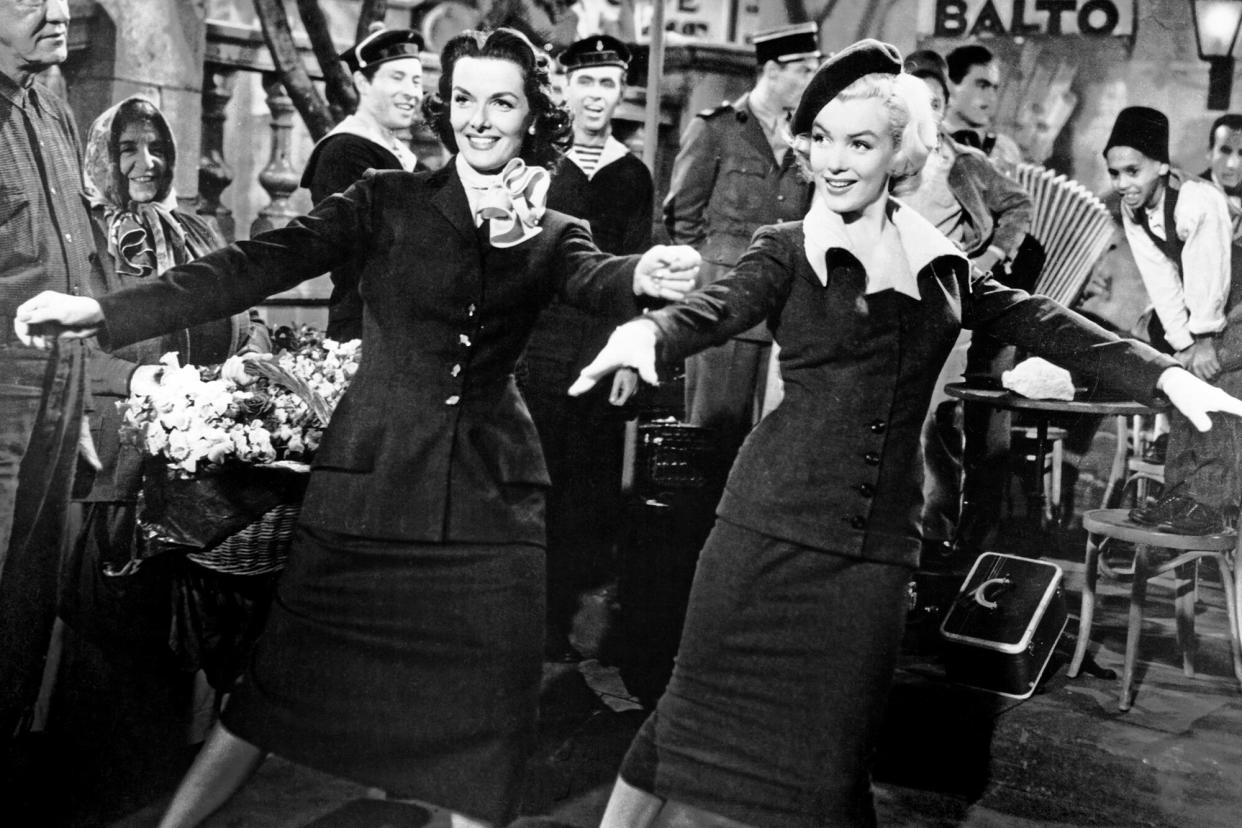Blonde director Andrew Dominik calls Gentlemen Prefer Blondes a film about 'well-dressed whores'

- Oops!Something went wrong.Please try again later.
- Oops!Something went wrong.Please try again later.
- Oops!Something went wrong.Please try again later.
Filmmaker Andrew Dominik's new movie Blonde is all about Marilyn Monroe, but apparently that doesn't mean he respects her work as an actress.
In an interview with Dominik for the British Film Institute's Sight and Sound magazine published Tuesday, film critic Christina Newland describes Dominik as seeming "genuinely gobsmacked" when she tells him that many of her friends and colleagues enjoy 1953 Monroe's film Gentlemen Prefer Blondes, which she says he regards, like most of Monroe's films, as little more than "cultural artefacts."
Later Tuesday, Newland posted an excerpt from her conversation with Dominik that did not appear in the published story, calling it "an outtake." In a brief back-and-forth, the director elaborates on his feelings toward Monroe's filmography. "She's somebody who's become this huge cultural thing in a whole load of movies that nobody really watches, right?" he asks. "Does anyone watch Marilyn Monroe movies?"
I do want to make sure I'm doing my due diligence here: he did talk about & reference many of her films. He clearly had studied and watched everything: whether he liked it (bar Some Like it Hot, which he loves) another story, evidently.
— Christina Newland (@christinalefou) September 27, 2022
When Newland replies that she does and knows others who do as well, Dominik questions her on what the film is really about. After the critic defends the movie as a "cynical" take on gender relations that "a lot of contemporary young women like," Dominik dismisses the two main characters, Lorelei Lee (Monroe) and Dorothy Shaw (Jane Russell), as "well-dressed whores."
Similarly, in an exchange printed in the original article, Dominik references Monroe's famous song from the movie, "Diamonds Are a Girl's Best Friend," asking, "It's like, is that sisterly advice, 'If you're gonna f---, make sure you get paid'? Or is it just romanticised whoredom?"
In a followup tweet, Newland provided some context for Dominik's comments about Gentleman Prefer Blondes. "I do want to make sure I'm doing my due diligence here: he did talk about & reference many of her films," she wrote. "He clearly had studied and watched everything: whether he liked it (bar Some Like it Hot, which he loves) another story, evidently."

20th Century-Fox/Everett Marilyn Monroe and Jane Russell in 'Gentlemen Prefer Blondes'
As for what inspired Dominik to make a movie about Monroe in the first place, especially considering that he admits to not being very interested in the book by Joyce Carol Oates on which the movie is based, the director says he was mainly concerned with telling a story "about how childhood drama shapes an adult's perception of the world."
"I've read everything there is to read about Marilyn Monroe," Dominik says. "I've met people that knew her. I've done an enormous amount of research. But in the end, it's about the book. And adapting the book is really about adapting the feelings that the book gave me."
He adds, "So I think the film is about the meaning of Marilyn Monroe. Or a meaning. She was symbolic of something. She was the Aphrodite of the 20th century, the American goddess of love. And she killed herself. So what does that mean?"
One thing the film is not about, says Dominik, is historical accuracy. "I know the ways in which this is different from what people seem to agree happened," he says, with the caveat that "nobody really knows what the f--- happened. So it's all fiction anyway, in my opinion."

Juan Naharro Gimenez/Getty Andrew Dominik
According to the director, it's also not about upholding Monroe's legacy. When Newland asserts that there are "cultural repercussions to making certain choices in terms of how we present a figure from the past," asking Dominik why he didn't include things from Monroe's life, like her forming her own production company or championing human rights, the director answers, "that stuff is not really what the film is about."
He adds, "It's about a person who is going to be killing themself. So it's trying to examine the reasons why they did that. It's not looking at her lasting legacy… If you look at Marilyn Monroe, she's got everything that society tells us is desirable. She's famous. She's beautiful. She's rich. If you look at the Instagram version of her life, she's got it all. And she killed herself. Now, to me, that's the most important thing. It's not the rest. It's not the moments of strength."
Blonde debuts Sept. 28 on Netflix.
Related content:

